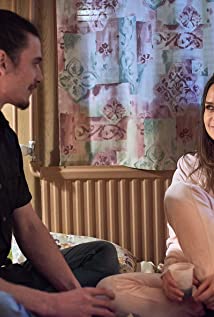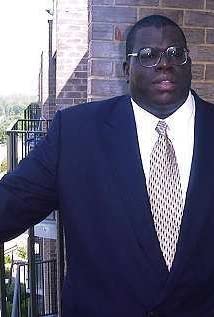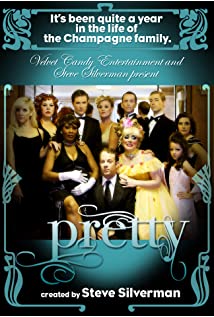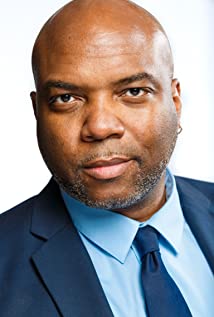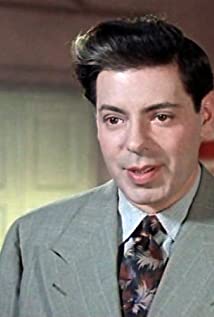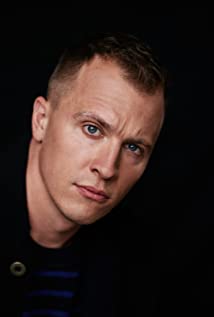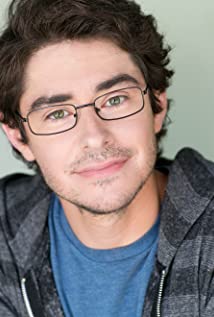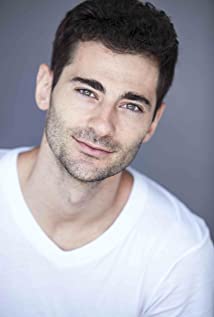Horst Buchholz was born on December 04, 1933 in Berlin, Germany, Germany, is Actor. On the cast list of The Magnificent Seven (1960), you will find several names that doubtless you know well: Charles Bronson, Steve McQueen, and Yul Brynner. But there is one name that you will have difficulty pronouncing, let alone identifying as an actor you have seen before. That man is Horst Buchholz, and he was one of the few German actors to have a considerable success in both Hollywood and in Europe. One would hardly guess that he was sought out to act in one of the most famous films of all time, only to have to turn it down.Horst Buchholz was born in Berlin, Germany, in the year 1933. His father was a German shoemaker, while his mother was born to Danish parents. Buccholz was put in a foster home in Czecheslovakia when World War II broke out in Europe, but he returned to Berlin the moment he had the chance. Realizing his talent in acting, Buchholz dropped out of school to perfect his acting skills. After moving from East Berlin to West Berlin, he became well-known for his work in theatre and on the radio. In 1952 he turned to film, and after a series of small roles, he found a larger one in the Julien Duvivier film Marianne de ma jeunesse (1955). He won a Best Actor award at Cannes for his role in the romantic/drama film Himmel ohne Sterne (1955) by Helmut Käutner. However, it was the lead role in the comedic Bekenntnisse des Hochstaplers Felix Krull (1957) that made him an established German actor.He followed this breakthrough role with the romantic film Endstation Liebe (1958) and the thriller Nasser Asphalt (1958), where the handsome young actor plays a former criminal who associates himself with a journalist. Now a familiar face in his country, Buchholz pursued making foreign films. His first non-German film was the British film Tiger Bay (1959). The film is about a girl who witnesses a seaman named Korchinsky (Buchholz) murder his girlfriend. The film won praise in both Germany and Britain, but it was Buchholz' next foreign film that secured his name in the history of classic films. This film was the epic western The Magnificent Seven (1960) directed by John Sturges. Buchholz played Chico, the inexperienced Mexican youth that wants to be a gunman and abandon his past. Buchholz starred alongside such legends as Charles Bronson and Yul Brynner. both of whom had strong European roots. The film was a hit, first in Europe, then was re-distributed in the States to a much higher profit. The film gained massive popularity, and even now is treasured as a classic.Buchholz could now find good and steady work nationally and internationally, which is something few actors could do at the time. He worked on the romantic film Fanny (1961), which is based on a trilogy of plays written by legendary writer Marcel Pagnol. Buchholz plays the role of Marius, a passionate but unsure youth who must choose between the girl he loves, and the life at sea he has always wanted. The film was a fine success, nominated for five Oscars, including Best Picture and Best Actor for Charles Boyer (who plays Buchholz' onscreen father).It was at this point in his film career where he was sought as the first choice to play the role of Sherif Ali in David Lean's legendary film Lawrence of Arabia (1962). However, Buchholz had to turn it down, as he had already signed up for another film, which turned out to be the Oscar-nominated comedy One, Two, Three (1961) (directed by Billy Wilder). The film was once again a fine success to add to Buchholz' career, but ultimately gained nowhere near as much of a status as David Lean's film. Buchholz also made the Italian film La noia (1963) in which he plays an untalented artist who begins a love affair with a young model. Throughout his in the early 60s, Buchholz had made a name for himself, acting in one Oscar-nominated film after another and showing off his talent as an actor. However, the success he had reached was not to last.Buchholz continued with film, including the James Bond spoof Estambul 65 (1965) and the crime film Johnny Banco (1967). He starred in the B-movie failure that was Cervantes (1967). Buchholz rebounded with the fiery film Le sauveur (1971) in which he plays a man who claims to be organizing resistance against the Nazis. He also played Johann Strauss in the Golden Globe-nominated musical The Great Waltz (1972). which was sadly another failure.The rest of the 1970s and the early 1980s were spent mostly on television and movies released for televison, whether it be foreign (Dead of Night (1977), Return to Fantasy Island (1978)) or German (Derrick). Buchholz found mild success again when he returned to the big screen with the WW II espionage film Code Name: Emerald (1985) in which he plays alongside such stars as Ed Harris and Max von Sydow. After this film, Buchholz returned to European movies, such as And the Violins Stopped Playing (1988) in which a group of gypsies flee Nazi persecutors. After taking a supporting role in the fantasy film In weiter Ferne, so nah! (1993), Buchholz acted in one of his most well known films: the Oscar-winning Italian film La vita è bella (1997) which was directed by and starred Roberto Benigni. Buchholz played the role of a doctor who befriends Benigni's character and frequently duels with him in riddles. This choice of role proved to be an echo of Buchholz' taste in choosing his projects in earlier years; the film won best foreign film that year, and was also nominated for Best Picture. Thanks to his gift for languages, Buchholz was able to dub himself in the foreign releases of the film.Buchholz continued making films and television appearances until 2002, by which time he was sixty-eight years old. He died the next year, in Berlin, of pneumonia. Berlin had been the city of his heart, and was buried there in honour of that fact. Horst Buchholz had been a renowned German actor, and had gained credibility in the United States and other countries. He was a varied performer, acting all kinds of roles in his life, but was always a proud German to the last.
Horst Buchholz is a member of Actor
Does Horst Buchholz Dead or Alive?
As per our current Database, Horst Buchholz has been died on 3 March 2003(2003-03-03) (aged 69)\nBerlin, Germany.
🎂 Horst Buchholz - Age, Bio, Faces and Birthday
When Horst Buchholz die, Horst Buchholz was 69 years old.
| Popular As |
Horst Buchholz |
| Occupation |
Actor |
| Age |
69 years old |
| Zodiac Sign |
Capricorn |
| Born |
December 04, 1933 ( Berlin, Germany, Germany) |
| Birthday |
December 04 |
| Town/City |
Berlin, Germany, Germany |
| Nationality |
Germany |
🌙 Zodiac
Horst Buchholz’s zodiac sign is Capricorn. According to astrologers, Capricorn is a sign that represents time and responsibility, and its representatives are traditional and often very serious by nature. These individuals possess an inner state of independence that enables significant progress both in their personal and professional lives. They are masters of self-control and have the ability to lead the way, make solid and realistic plans, and manage many people who work for them at any time. They will learn from their mistakes and get to the top based solely on their experience and expertise.
🌙 Chinese Zodiac Signs
Horst Buchholz was born in the Year of the Rooster. Those born under the Chinese Zodiac sign of the Rooster are practical, resourceful, observant, analytical, straightforward, trusting, honest, perfectionists, neat and conservative. Compatible with Ox or Snake.
Some Horst Buchholz images
Biography/Timeline
1922
In "Diane Chambers Day," the 22nd episode of the fourth season of the TV series Cheers, Dr. Frasier Crane (Kelsey Grammer) remarks, "I never miss a Horst Buchholz film."
1938
Horst Buchholz was born in Berlin, the son of Maria Hasenkamp. He never knew his biological father, but took the surname of his stepfather Hugo Buchholz, a shoemaker, whom his mother married in 1938. His half-sister Heidi, born in 1941, gave him the nickname "Hotte", which he kept for the rest of his life.
1949
He barely finished his schooling before seeking theater work, first appearing on stage in 1949. He soon left his childhood home in East Berlin to work in West Berlin. He established himself in the theater, notably the Schiller Theater, and also on radio.
1951
In 1951 he started getting small uncredited on-screen parts in films like Warum? (1951) and Adventure in Berlin (1952).
1954
He had a marginally larger role in Marianne of My Youth (1954), directed by Julien Duvivier and was in a TV movie Die Schule der Väter . He was in Sky Without Stars (1955) from Helmut Käutner and Regine (1956).
1956
His youthful good looks next brought him a part in Die Halbstarken (1956), which made him a teen favorite in Germany; an English-dubbed version was released in the US as Teenage Wolfpack, with Buchholz billed as "Henry Bookholt" and promoted as a new James Dean.
1957
He was in King in Shadow (1957) then The Girl and the Legend (1957) with Romy Schneider. Full-fledged stardom resulted from Confessions of Felix Krull (1957), in which he played the lead; it was directed by Kurt Hoffmann and based on the novel by Thomas Mann. He made another with Schneider, Monpti (1957) aka Love from Paris.
1958
In 1958 Buchholz married French Actress Myriam Bru. They had two children. That year he starred in Two Worlds (1958), Wet Asphalt (1958), and Auferstehung (1958) aka Resurrection.
1959
He returned to Germany for Ship of the Dead (1959), then accepted an offer from Hollywood to play a young aspiring gunslinger in The Magnificent Seven (1960). Arriving in the US with time to spare before filming began, Buchholz lingered in New York and appeared on Broadway in a short-lived adaptation of Cheri (1959) before continuing westward.
1961
After The Magnificent Seven, which went on to become a classic, Buchholz played in the romantic drama Fanny (1961) with Leslie Caron and Maurice Chevalier, and the Berlin-set comedy One, Two, Three (1961), directed by Billy Wilder. Though filmed in Mexico, France and Germany respectively, these were Hollywood productions and Buchholz had begun a period of residence in Los Angeles. He proved to be popular with American audiences, but several missed opportunities thwarted the upward trajectory of his career and it began to stall. Filming schedule conflicts prevented him from accepting the offered roles of Tony in West Side Story (1961) and Sherif Ali in Lawrence of Arabia (1962).
1963
Instead he played the lead in Nine Hours to Rama (1963) for Twentieth Century Fox and The Empty Canvas (1963), shot in Italy with Bette Davis. He returned to Broadway to appear in Andorra (1963) which only had a short run.
1964
On the advice of his agent, like many other actors who were asked, he turned down the starring role in A Fistful of Dollars (1964). He was in Marco the Magnificent (1965) with Anthony Quinn; That Man in Istanbul (1965), a Eurosopy film; Johnny Banco (1967), a comedy with Yves Allégret; and Young Rebel (1967), a biopic of Miguel de Cervantes with Gina Lollobrigida. He guest starred on The Danny Thomas Hour (1968).
1969
Buchholtz starred in Astragal (1969), How, When and with Whom (1969), The Dove Must Not Fly (1970), and The Saviour (1971). He returned to Hollywood lead roles briefly with The Great Waltz (1971) playing Johann Strauss.
1973
Buccholtz starred in ...But Johnny! (1973), and The Catamount Killing (1974). He appeared on German television in shows like Die Klempner kommen (1976).
1976
Buccholz moved into supporting roles in films like The Savage Bees (1976), Raid on Entebbe (1976), Dead of Night (1977), and The Amazing Captain Nemo (1978). He guest starred on episodes of Logan's Run, Fantasy Island, Charlie's Angels, and How the West Was Won and had the lead in Women in Hospital (1977) and had a good role in The French Atlantic Affair (1979).
1979
Buchholz was in From Hell to Victory (1979), and Avalanche Express (1979). He had the co lead in Berlin Tunnel 21 (1981) and was top billed in Aphrodite (1981). He guest starred on Derrick and had a support part in Sahara (1983).
1984
Buchholz focused on Germany: Funkeln im Auge (1984), and Wenn ich mich fürchte (1984). He went to Hollywood for parts in Code Name: Emerald (1985) and Crossings (1986).
1986
Buchholz's credits include Affari di famiglia (1986), Die Fräulein von damals (1986), and Der Schatz im Niemandsland (1987). He had the lead in And the Violins Stopped Playing (1989) and support one in Escape from Paradise (1990).
1992
Buccholz turned up in Aces: Iron Eagle III (1992), Touch and Die (1992), Faraway, So Close! (1993), The Cave of the Golden Rose 4 (1995), Tödliches Erbe (1995), Der Clan der Anna Voss (1995), Maître Da Costa, and The Firebird (1997). He portrayed Dr. Lessing in Roberto Benigni's Oscar-winning Life Is Beautiful (1997).
1997
He was in Geisterstunde - Fahrstuhl ins Jenseits (1997), Der kleine Unterschied (1997), Dunckel (1998), and Der kleine Unterschied (1998). He returned to America for Voyage of Terror (1998).
1998
Buchholtz's last performances include Kinderraub in Rio - Eine Mutter schlägt zurück (1998), Heller als der Mond (2000), The Enemy (2001), Der Club der grünen Witwen (2001), Traumfrau mit Verspätung (2001), Detective Lovelorn und die Rache des Pharao (2001), Abschnitt 40 (2001), Atlantic Affairs (2002) and In der Mitte eines Lebens (2003).
2000
Usually reticent about his private life, in a 2000 interview in the German magazine Bunte Buchholz publicly came out, saying "Yes, I also love men. Ultimately, I'm bisexual. ... I have always lived my life the way I wanted." He explained that he and his wife of nearly 42 years had a stable and enduring arrangement, with her life centered in Paris and his in Berlin, the city that he loved. Their son Christopher Buchholz, also an actor and the Producer of the feature-length documentary Horst Buchholz...Mein Papa (2005), has publicly acknowledged his father's bisexuality.
Horst Buchholz trend









